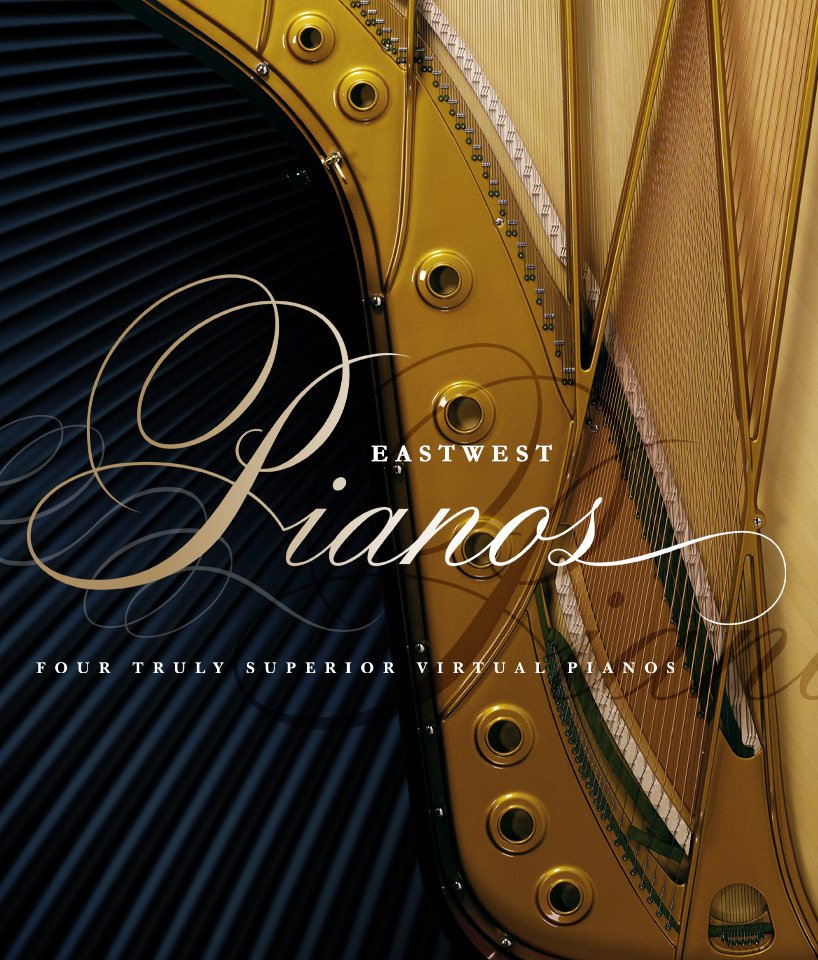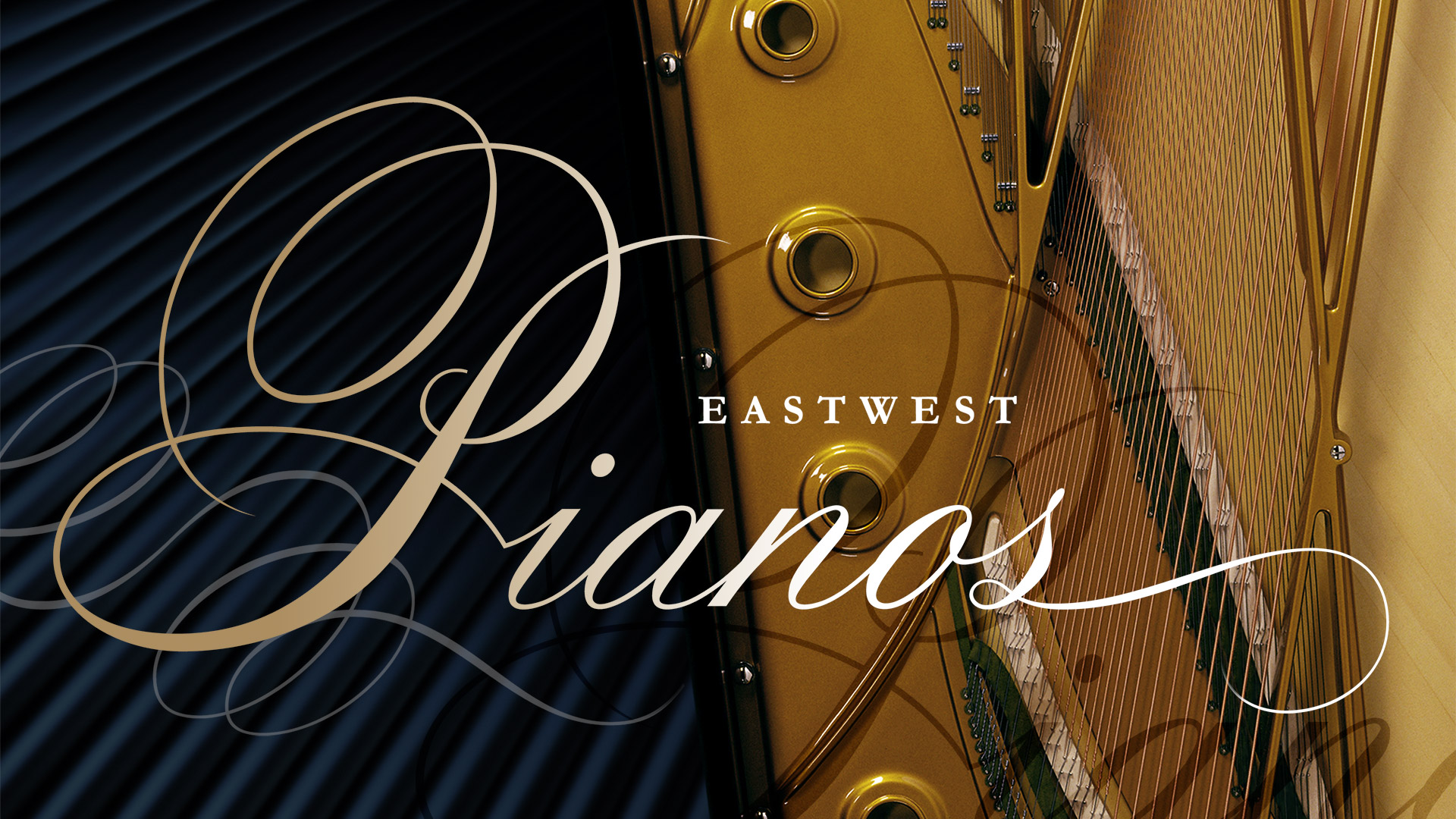Share
EastWest Quantum Leap Pianos Bechstein Platinum
EastWest Quantum Leap Pianos Bechstein Platinum
Couldn't load pickup availability
BECHSTEIN 280
The clear winner in clear detail and note separation. Whereas the other instruments in Pianos excel in creating a larger-than-life acoustic tapestry, the Bechstein 280 is perfectly content to offer precise harmonic separation between every note. Each note is slightly thinner than the other pianos, which affords you the ability to perform incredibly complex passages and still hear each individual note, no matter how large your chord stacks are.
- Created by award-winning sounds producers Doug Rogers and Nick Phoenix
- Includes the same impulse responses used to record Symphonic Orchestra and Symphonic Choirs, allowing all 3 to blend easily and seamlessly
- Close mic recordings engineered by Ken Scott (Elton John, Supertramp, David Bowie, The Beatles)
- Recorded in a specially-prepared piano environment with vintage Neumann microphones, Meitner AD converters and a classic 8078 Neve console
- Load only the mic positions you want into memory (each piano contains roughly 60 GBs of samples)

A LEGENDARY COLLECTION
Pianos was created with a singular goal: to fully capture every sonic detail possible from 4 of the most sought-after grand pianos in the world by any means necessary. With 3 individual mic positions, 8 separate articulations, and up to 18 velocities per note for each articulation, the detail and stereo image of every piano is highly customizable to your exact performance and mixing needs out of the box. You can easily mix multiple mic positions and simulate the damping effects of a real grand piano lid for each instrument, giving you full performance flexibility.
UNPARALLELED REALISM
Listen to any of the audio demos of Pianos, and you’ll find it difficult to believe the performances weren’t recorded live in a concert hall. Every piano (Steinway, Bösendorfer, Bechstein and Yamaha) has enough fine detail to suit everything from quiet, subdued passages to virtuoso performances--and you can push their dynamic range as hard as you need to, effortlessly jumping between pianissimo and fortissimo as desired. Pianos seamlessly transitions between 7 different articulations: sustain, sustain with pedal, repetitions, repetitions with pedal, soft pedal, soft pedal with sustain pedal, and staccato, with individual release trails.
SYSTEM REQUIREMENTS
|
MINIMUM SYSTEM
|
RECOMMENDED SYSTEM
|
The chart below outlines the MacOS and Windows 64-bit operating systems and sequencers that are officially supported and fully tested with the latest version of Opus. Please note that while most Sequencers / DAWs are VST 2, VST 3, AU and AAX plug-in format compatible, only those listed in the chart below are officially supported.
| Product | Version | MacOS (10.13+) | Windows 10 |
|---|---|---|---|
| EW Play 6 Stand-Alone | 6.0+ | YES | YES |
| EW Opus Stand-Alone | 1.0+ | YES | YES |
| Ableton Live | 10.0+ | YES | YES |
| Apple Logic Pro | 10.0+ | YES | - |
| Apple Garageband | 10.3+ | YES | - |
| Avid Pro Tools | 2018.1+ | YES | YES |
| Bitwig Studio | 3.0+ | YES | YES |
| Cockos Reaper | 6.0+ | YES | YES |
| Image-Line FL Studio | 20+ | YES | YES |
| Motu Digital Performer | 9.0+ | YES | YES |
| Steinberg Cubase(1) | 9.0+ | YES | YES |
| Steinberg Nuendo(1) | 8.0+ | YES | YES |
| Presonus Studio One | 4.0+ | YES | YES |
| VSL Vienna Ensemble Pro | 6.0+ | YES | YES |
| Notation Software(2) | Version | ||
|---|---|---|---|
| Avid Sibelius | 2018.1+ | YES | YES |
| MakeMusic Finale | 25.0+ | YES | YES |
| Steinberg Dorico | 3.0+ | YES | YES |
- (1) VST3 usage is recommended
- (2) Sibelius / Finale / Dorico notation programs work with Opus, but do not support the full feature set of some Opus/Play Libraries, such as those that use WordBuilder. Please contact support for details.



